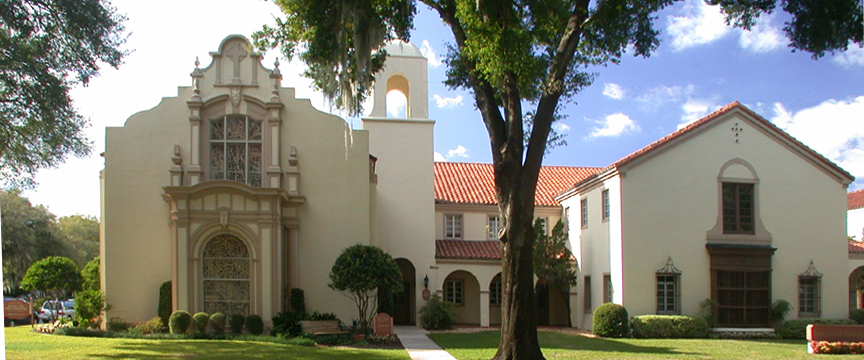I LOVE Football, and I especially love this season. I grew up a Gator fan since my parents are both graduates from the University of Florida, as well as my sisters who both graduated, one with her Bachelors and one with her Masters Degree. As a kid, I can remember watching every Saturday afternoon with my parents even as young as three-years-old. We even had one of those foam fingers that we could point at the TV when we didn’t like a play or a bad call from the referee. As I grew up, Fall was always filled with football games and cheering on my favorite College team.
Shortly after getting married and getting through the first major step in the ordination process, Ryan and I were appointed to a church in Gainesville, FL. We loved our four years there. Our daughter Emmaline was born, members of our family moved shortly after us and both of my sisters lived there while going to school. It was a sweet season because I had lots of people I loved nearby. Coupled to that was our love of football and the ability to walk to the stadium on Saturdays during the fall since we lived only 9 blocks away. Over the years, I have learned the rules of the game, and have loved following season after season, coach after coach, and team after team.
If you are like me and you have a favorite Team, you know all of the emotions that go with it. I will confess that there have been some Saturdays when I have shouted “un-pastor-like” things to the TV or to the field (as if they can hear me). It’s true, I get wrapped up in the game and in the emotion of it all. This Saturday’s game wasn’t much different. If you watched the Florida Gators play the Texas A&M Aggies, it didn’t turn out the way us Gator fans had hoped, but man oh man, was it a good game. At the top of the 3rd quarter, the Offensive Lineman, #51 had unsportsmanlike conduct called on his shoving of a Texas A&M player. He was wrong and he shouldn’t have done it and would have gotten the 15-yard penalty if not for #9. On the opposing team, #9 jumped in to protect his teammate and then got unsportsmanlike conduct called on him too. The two penalties canceled each other out and put the Gators in perfect field position to make their next play which happened to be a well-placed throw and a run in for a touchdown. I was ecstatic and thankful that we were now ahead. Of course, we tied up and on the last 2 seconds, Texas A&M kicked a field goal to win 41 to 38, but man oh man, it was a good game.
As I thought about that game-changing penalty, I thought a little bit about the words of Jesus when he says,
“27 “But I say to you that listen, Love your enemies, do good to those who hate you, 28 bless those who curse you, pray for those who abuse you. 29 If anyone strikes you on the cheek, offer the other also; and from anyone who takes away your coat do not withhold even your shirt. 30 Give to everyone who begs from you; and if anyone takes away your goods, do not ask for them again. 31 Do to others as you would have them do to you.” Luke 6:27-31
We have heard this Scripture or versions of it throughout our journey of faith, but for me, it doesn’t get much easier to love my enemy as I mature. In football and perhaps in hockey, there are many moments of proverbial “Striking of the cheeks” because that is a part of the rules of the game; it is a physical sport after all. But I couldn’t help but feel for my friend, Texas A&M #9 who wanted to protect his Teammate and get even against the Florida player. How frustrating it must have been that when he tried to get even, he received the same penalty as the one he was trying to get even with!
The rules of the world are NOT the same as Football (of course), so I struggle with the fairness in it all. Sometimes I find myself wanting to play God (the referee) and dole out the consequences. I struggle with Jesus’ words about nonviolence because I have been in situations when this Scripture, called the Sermon on the Mount, is taken WAY out of context and used to justify things as horrific as domestic abuse or the belief that Christians are the doormat of society. Well, this Scripture is really about shame. This Scripture found in both Matthew 5 and Luke 6 is less about nonviolence and more about the shame of violence.
I need a volunteer. If I were preaching on this text, I would ask someone to come up and help me demonstrate this. If you live with others, choose the one you are most struggling to love right now in the midst of quarantine and ask them to be your “striking of the cheek” volunteer (just kidding). It is vital observation within the social context of the first-century world is that the right hand and the left hand did different things. The right hand was used for clean things like eating and shaking hands and the left hand, well, it was used for everything else that isn’t appropriate to talk about in a devotional. Looking at the inside of your right hand was fine because it was clean, from a purity perspective, but you never wanted to look at the inside of your left hand, because it reminded you of how dirty you had been. Now as we reread the text bearing this important social context in mind, the Scripture that Jesus teaches us takes on a whole new meaning. If someone angers you and is now standing before you, you might retaliate or get even by striking their cheek with your clean hand (your right). If then, that person “turns the other cheek” toward you, the only way you could strike them again is if you lifted up and hit them with your left (unclean) hand. This would mean that you would inevitably see the inside of your left hand and remember, with shame, just how dirty you are.
Of course, I am not advocating for shaming each other, that is not the lesson here. But in the context of a first-century audience that followed purity laws and knew the difference between the use of the right and left hand, this call to strike the other cheek takes on a whole new meaning, does it not? That is because God is God and we are not and we are not perfect enough to know the whole story, nor are we just enough to distribute perfect justice, only God can do that. Said another way by the prophetic pastor and civil rights activist, Rev. Dr. Martin Luther King:
“Darkness cannot drive out darkness; only light can do that. Hate cannot drive out hate; only love can do that.”
I wonder if that is what Jesus had in mind when he spoke those words on a hillside thousands of years ago. He knew that we would be people that would want to protect, want to fight back, and want to get even. I wonder what God might be trying to teach us right now in the midst of such division and finger-pointing.
Said in a more modern way:
“To you who are ready for the truth, I say this: Love your enemies. Let them bring out the best in you, not the worst. When someone gives you a hard time, respond with the energies of prayer for that person. If someone takes unfair advantage of you, use the occasion to practice the servant life. No more tit-for-tat stuff. Live generously.” Luke 6:27-30 The Message
Let it be so.











